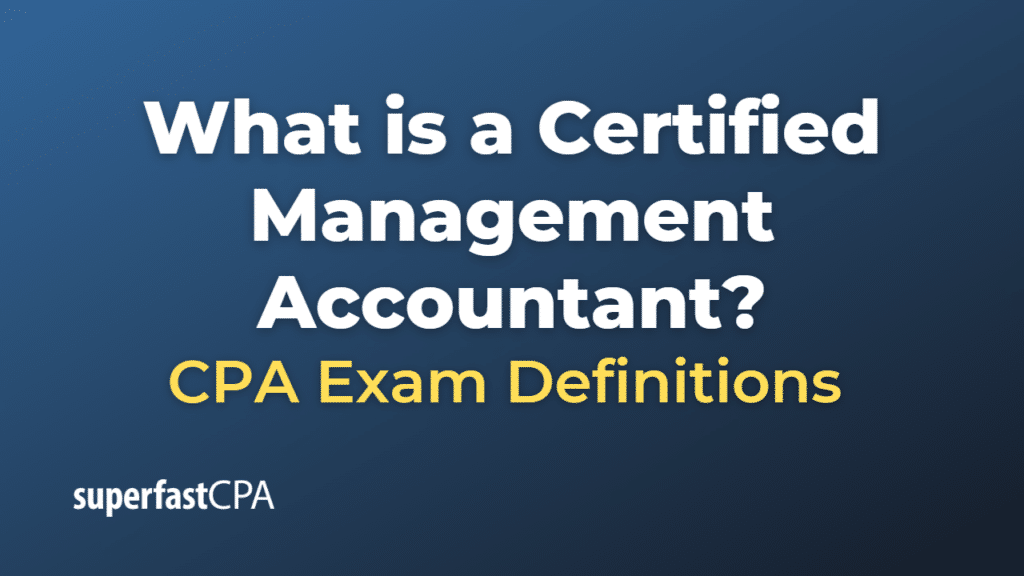Certified Management Accountant
A Certified Management Accountant (CMA) is a professional designation awarded by the Institute of Management Accountants (IMA) to individuals who have demonstrated expertise in strategic management accounting and financial management. The CMA designation signifies that the holder possesses the necessary skills to analyze and manage financial information, make strategic decisions, and contribute to the overall success of an organization.
To become a CMA, a candidate must fulfill the following requirements:
- Education: Hold a bachelor’s degree from an accredited college or university, or an equivalent degree from a recognized educational institution.
- Experience: Have at least two years of continuous professional experience in management accounting or financial management. This experience must be relevant, practical, and involve making decisions based on financial information.
- Examination: Pass a two-part CMA exam that covers a wide range of financial and management accounting topics. The exam tests the candidate’s knowledge of financial planning, analysis, control, decision support, and professional ethics.
- Continuing Education: Maintain the CMA designation by completing at least 30 hours of continuing professional education (CPE) each year, with at least two hours in the area of ethics.
CMA professionals often work in various roles such as financial analysts, cost accountants, controllers, finance managers, or even CFOs. They are equipped to handle responsibilities related to financial planning, analysis, performance evaluation, and decision-making support within organizations.
Example of a Certified Management Accountant
Let’s consider an example of how a Certified Management Accountant (CMA) can add value to a manufacturing company:
Jane is a CMA working as a cost accountant at ABC Manufacturing, a company that produces various types of electronic gadgets. Jane’s primary responsibilities include analyzing costs, preparing budgets, and providing financial data to support decision-making.
One day, the company’s management decides to launch a new product line and wants to understand the financial implications before making a final decision. Jane is tasked with providing a detailed cost analysis and projecting the potential profitability of the new product line.
Jane begins by analyzing the direct and indirect costs associated with producing the new product, including materials, labor, and overhead costs. She also considers factors such as economies of scale, potential cost savings from process improvements, and the impact of different pricing strategies on profitability.
After compiling the data, Jane prepares a comprehensive report that includes a break-even analysis, projected profit margins, and a sensitivity analysis to understand how changes in various assumptions could affect the financial performance of the new product line.
Based on Jane’s analysis, management can make an informed decision about whether to proceed with the new product line or explore other alternatives. In this way, Jane’s expertise as a CMA enables her to contribute significantly to the strategic decision-making process within her organization.
This example illustrates the importance of CMAs in providing valuable financial insights, cost analysis, and strategic advice to help organizations make informed decisions and drive growth.













